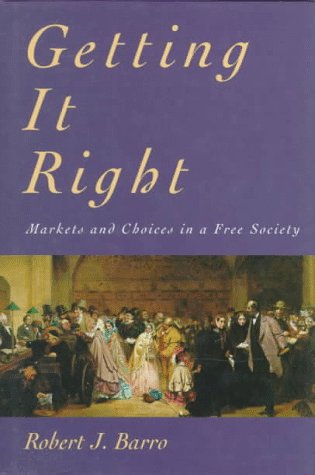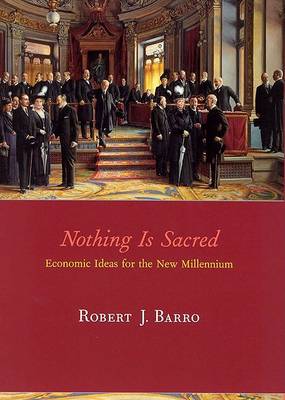The MIT Press
3 total works
Barro argues that government should provide markets with a stable nominal framework and then stay out of the way to best allow for price stability. Writings in the third section cover fiscal and other macroeconomic policies. Topics include the distorting influences of taxation, especially taxes in capital income; infrastructure investment and other government spending; and the consequences of public debt and budget deficits. In a final section, Barro looks at more micro issues such as cartels, tax amnesties, school choice, privatization, cigarette-smoking regulation, endangered species regulation, the market for baseball players, and term limits for politicians.
Essays by the influential-and controversial- macroeconomist Robert J. Barro.
Since the 1970s, Robert Barro's academic research has significantly influenced macroeconomic theory. For more than a decade, his writing has also enlivened the pages of publications such as the Wall Street Journal and Business Week. In Nothing Is Sacred, Barro applies his well-honed free market arguments to a remarkably diverse range of issues. These include global problems such as growth and debt, as well as social issues such as the predictive value of SAT scores, drug legalization, the economics of beauty, and the relationship between abortion rights and crime reduction.The book opens with a series of essays on famous economists, past and present, and other prominent figures whose work has economic implications, including Joe DiMaggio and Bono. In the book's second part, Barro discusses the economics of social issues. In the third part, he considers democracy, growth, and international policy, and in the final part he examines fiscal policy, monetary policy, and the macroeconomy. Throughout, he shows that even the most widely held beliefs are not sacred truths but are open to analysis.


